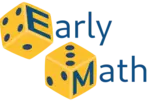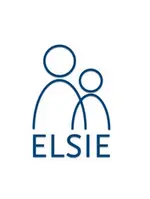Funded research projects and current grants

BamBI: Bamberg baby institute
The Bamberg baby institute is a research unit at the chair of developmental psychology, education and learning. A special focus is on early child development, specifically the development of language and cognition, their mutual interrelations as well as their relation to socio-emotional development, on influencing variables and how early child development impacts later development. Thereby we study mother-child interaction as well as early child characteristics and the emergence of early competencies in various developmental domains. Longitudinal methods and experimental studies (habituation paradigm, eye-tracking methods, video-taped interactions situations, data from questionnaires and tests etc.) are used to learn more about the mechanisms and impact of early child development.
Further information (in german language)

BRISE: Bremen initiative to foster early childhood development
(funded by the Federal Ministry of Education and Research)
The “Bremen Initiative to Foster Early Childhood Development” (BRISE) is a longitudinal study investigating the effects of systematically coordinated early childhood intervention on various areas of child development (including cognitive, social, and emotional development).
With a projected total of 1,000 children and families participating, the survey starts shortly before birth and continues until children reach school age. The study focuses on children from socially or culturally disadvantaged families, and will support and evaluate their cognitive and social development from early on. The study seeks to identify the effects of coordinated interventions on early childhood development. The reference group is comprised of children whose families do not take systematic advantage of programs offered in the city of Bremen. In addition, intervention effects will be evaluated by comparing BRISE data with data from the Newborn Cohort Study of the National Educational Panel Study (NEPS-SC1) and the Socio-Economic Panel (SOEP). To link BRISE to the NEPS is the joint responsibility of the network partners Otto-Friedrich-University Bamberg and Leibniz-Institute for Educational Trajectories (LIfBi).
Further information: BRISE

EarlyMath: Mathematical development and the impact of interaction quality in early childcare
How the different facets of early interaction quality in preschools affect the development of mathematical competences of children from the age of two is the main question of the EarlyMath project. Within the project, global and mathematical interactional behavior of preschool teacher is promoted through various interventions. In order to be able to draw conclusions about the effectiveness of the interventions, their effects will be comparatively investigated. The project will be a collaborative project between the German Youth Institute (DJI) and the University of Bamberg.
Further information you can find here.

ELSIE - Development of language, theory of mind, and executive functions: A comparative longitudinal study on influencing factors and correlations in deaf and typical hearing children
(Starting in 2022 as part of Klara Hermes' doctoral project; funded by the German Research Foundation (DFG) since 2025; collaborative project (with colleagues from LMU Munich) on “Language development, theory of mind, and executive functions: A comparative longitudinal study of influencing factors and correlations in deaf and typical hearing children”)
The project "ELSIE" project focuses on the interrelations between parental behavior and child development in early childhood. For this purpose, differnt developemntal domains (e.g., facets of language, socio-emotional, and cognitive development) are assessed longitudinally in 3-year-old children and traced over time. Parental interaction behavior is assessed by means of video recordings of play situations as well as by means of parent questionnaires.
Special attention is given to the situation of deaf and hard of hearing children growing up with spoken language (hearing parents). Therefore, part of the sample consists of children with permanent, bilateral hearing loss. In this way, we aim to investigate whether and to what extent parental behavior differs when raising a deaf or hard of hearing child. We further investigate how this relates to child characteristics and developmental differences.
The project has been running since 2022 as part of K. Hermes' PhD project and a preparatory project by S. Weinert & K. Hermes (funded by the University of Bamberg). The focus was on the development of deaf/hard of hearing and typical hearing children with typical hearing parents. This focus will be continued in the Bamberg part of the project. Since 2025, the Chair of Special Education – Focus on Hearing and Communication at LMU Munich (Prof. Dr. Laura Avemarie) has also been involved. Laura Avemarie's team focuses on the development of deaf children with deaf parents (deaf native signers).
Further information: ELSIE (in German)

National Educational Panel Study (NEPS)
(2009 - 2013 funded by the Federal Ministry of Education and Research; since 2014 Study by the Leibniz Institute for Educational Trajectories (LIfBi) at the University of Bamberg)
The National Education Panel Study deals with the questions, how competences develop in course of life; how competences influence decision-making-processes of certain critical transitions of the educational career (and vice versa); how and what extent learning opportunities in families, peer groups and the composition of educational and learning processes in kindergarten, school and college as well as vocational training and further education influence competences. Moreover, it should be clarified, which competences are significant for the success of educational achievements, for the lifelong learning and for successfully individual and social life. Therefore, competence developments are measured not only in kindergarten or in general schools, but also in vocational training, in studies and after leaving the education system.
Weitere Informationen: https://www.neps-data.de/Mainpage

Leibniz Center of Excellence for Early Childhood Education
The Leibniz Center of Excellence for Early Childhood Education was founded with the aim of exploring the developmental processes of children in the first eight years of life and the support they receive from family and institutional learning environments. For this purpose intervention studies are conceived and carried out with the expertise of various disciplines. Scientists from the following disciplines are represented: educational psychology (IPN), developmental psychology (DIPF, JLU Gießen, OFU Bamberg), educational science (IPN, Goethe University), cognitive psychology (IWM), elementary education (FU Berlin, OFU Bamberg), the subject didactics mathematics and chemistry (IPN) and the Economics of Education (DIW).
The substudy „EarlyEd“, which is located at the Otto-Friedrich-University Bamberg, focuses especially on the early roots of competence development as well as connections between general cognitive abilities and domain-specific competence development (linguistic, mathematical competences) in early childhood.